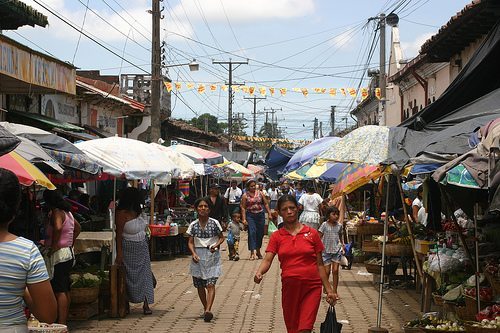Is the Life and Health of a Young, Rural Woman of Any Value in El Salvador?
It cannot but be concluded that the life and health of a young, rural woman had no value under the law in El Salvador. Can the rest of the world remain indifferent?

Beatriz is a 22-year-old woman from a poor, rural area of El Salvador who has the misfortune of suffering systemic lupus erythematosus (lupus), an autoimmune disease. Pregnancy often exacerbates lupus, with adverse effects on kidney function, potentially leading to accelerated progression to end-stage renal disease. In addition, pregnancies in women with lupus are at high risk for spontaneous abortion and premature delivery, intrauterine growth retardation, and a maternal complication called superimposed pre-eclampsia.
These were the exact conditions Beatriz faced in her first pregnancy two years ago when she experienced complications of hypertension so severe she had to undergo a cesarean section at 32 weeks, and was then forced to spend several days in intensive care. Several complications arose post-partum in her premature baby, a son, but he survived in good condition and was back with his mother after 32 days under neonatal care. Beatriz, however, was not as lucky, and as result of the pregnancy she was left with chronic hypertension and a kidney dysfunction called lupus nephritis.
At that time, Beatriz was offered surgical sterilization, but because her baby’s condition was tenuous and she was afraid he would die, she refused out of fear she would not be able to have any more children.
After her son’s survival was ensured, it was again suggested she undergo sterilization, but she failed to return on the day of the appointment. She only returned to the hospital again when she was 13 weeks pregnant and facing severe complications with hypertension, with lupus nephritis, and with infected skin lesions typical of lupus. During a sonogram it was found that the fetus had no brain and only a partially formed skull, a fatal condition known as anencephaly. The survival of the fetus is ensured by the uterine environment, but after birth it cannot keep breathing for very long and can only be kept “alive” with technology in the same way as can adults with cerebral deaths.
El Salvador has the most stringent abortion laws in the world; abortion is not permitted in any circumstance. The value of the life of the fetus is given equal value to that of the women, following principles defended by the hierarchy of the Catholic Church.
To apply such principles to the case of Beatriz, however, is not supported by any rational analysis. Adults and babies are considered dead when they have no brain activity—known as cerebral death—even though the heart may continue beating. In fact, we take organ donations from individuals with cerebral death; their hearts may still be beating or kept beating to keep the organ viable for transplantation, but they are not “alive.” Anencephalic babies never have cerebral activity because they do not have a brain, and this is particularly true in the case of Beatriz, whose fetus was found to have complete anencephaly. Babies with this condition can be “kept” breathing and with heartbeats for hours and even days, which doesn’t mean that they ever have a chance of being alive.
Independent of the country’s policies on abortion, the insistence on prohibiting interruption of Beatriz’s pregnancy is totally irrational, because in effect the possibility of having a baby is “aborted” at the time the anencephaly becomes known.
Beatriz is in the best maternity hospital in El Salvador, under the care of dedicated and very well-prepared perinatologists, who have succeeded in keeping her stable and in good condition until recently. Her blood pressure is being kept at practically normal levels with the highest doses of the appropriate drugs possible, and her kidney function is being maintained close to normal. Her doctors know and have known, however, that as the pregnancy progresses it will become impossible to prevent potentially fatal complications without terminating the pregnancy. They also know that intervening now is rather safe, because she is in good condition, but doing the c-section after the expected complications have arisen will be quite dangerous and can be fatal. They also know that the continuation of this pregnancy is leading to accelerated progression of her kidney disease toward renal failure.
Finally, they know that the fatal outcome of the newborn will be the same if the pregnancy is terminated today, tomorrow, or a few weeks later, given the reality of her situation.
They know what they should do, but they do not do it because they will be punished with jail if they comply with their ethical duty as physicians of protecting the life of the mother, in this case with no consequences for the life of the fetus or baby.
The Supreme Court of Justice of El Salvador ignored the danger for the health and life of a young woman and denied her request for an abortion under the irrational argument of “protecting the life” of a fetus who has never had and will never have brain life.
It cannot but be concluded that the life and health of a young, rural woman has no value under the law in El Salvador. Can the rest of the world remain indifferent?
